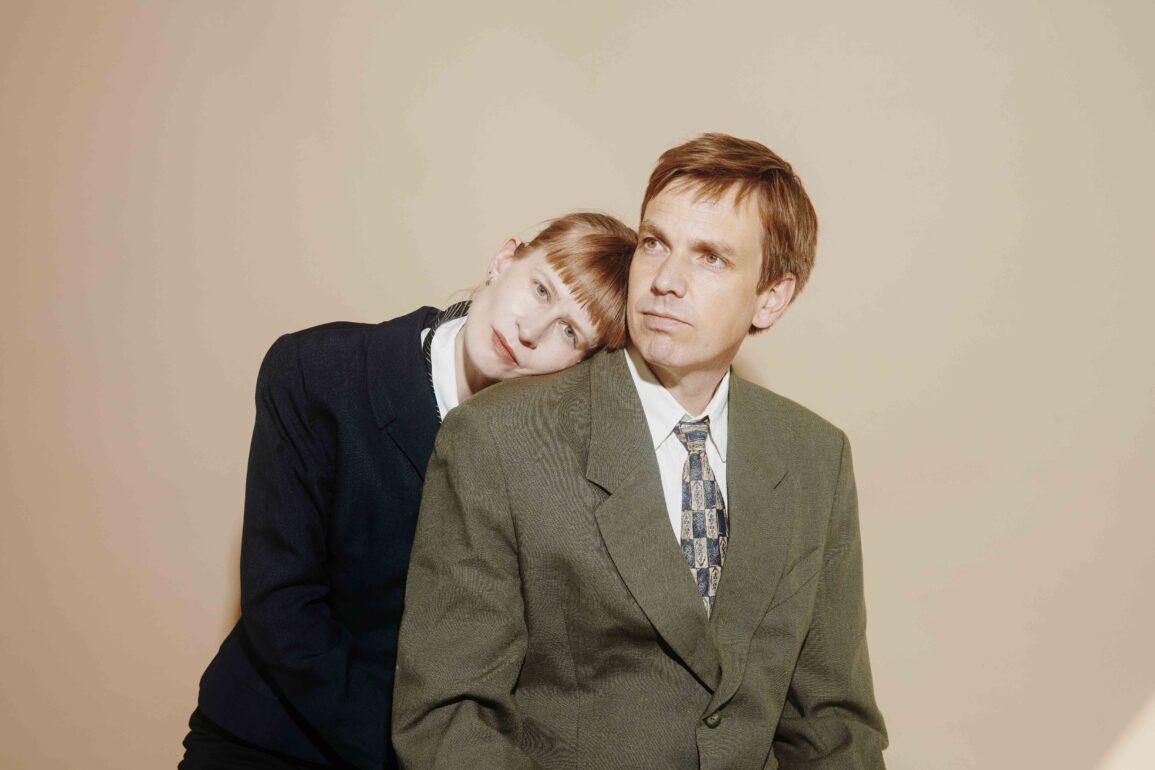Photo Credit: Signe Fuglesteg Luksengard
Jenny Hval and Håvard Volden’s collaborative project Lost Girls has released their new album Selvutsletter recently. We reached out to the duo to ask whatever was on our minds.
How are you doing, guys?
Jenny: We are well! About to go on tour. It’s snowing in Oslo.
Your new studio album, Selvutsletter, is out now. Can you briefly tell its odyssey and how it came to be to our readers?
J: We wrote everything for a live performance last year. We were very kindly booked to a programme of Norwegian avant-garde theater (as a music performance… but in-between the theatre programming) at Les Subs in Lyon. We thought this was an excellent opportunity to create new music. Nobody expected it. Probably most people in the audience didn’t know.
Håvard: I made a bunch of sketches and sent them over to Jenny. Then she rearranged them in mysterious ways and made magic.
In what ways was the creation process different from Menneskekollektivet?
J: Menneskekollektivet was written during a longer time period, and played live for a long time before we, very quickly, recorded the material we had at hand. We also recorded in a studio and then mixed the album many months later… Selvutsletter was recorded in our own mini studio, and mixed and mastered super quickly. We didn’t have much time to think.
Like Menneskekollektivet, the album’s name is also a made-up word. Do you like playing with language, and do you think that attitude is actually in line with Lost Girl’s spirit in that you deconstruct musical structures?
J: I have played with language all my life, and I like to think that music makes language more flexible and playful. I like to extend this into titles and concepts. For me, there is something necessary, but also humorous, in that process.
Do you have other made-up word ideas in your notes? Are you idea collectors, or do ideas come to you on the spot?
J: I don’t even think about words as made up until they are a title. I don’t think about words too much in Lost Girls actually, they only exist in the music. In my solo projects, I am more «written». I often work with texts I didn’t write for music, but for the page. Having said that, I am not a collector. I don’t take a lot of notes.
What instruments and tools did you experiment on for this record?
J: Midi saxophone and horn sounds from my music software.
H: Yes, we both had fun with midi instruments. They can be very silly, but in the right context, they can be really nice too.
But there are also a ton of guitars, drum machines, and analog synths, like my old time favorite MS20.
If you were to handpick the easiest and hardest songs to write and record for this album, which two would you pick?
J: They were all easy. Right Håvard?
H: Hm…well…Some parts were difficult to learn because they were improvised when we made them. Like the guitar riff on “Ruins”. It’s different every round.
Can you name three memories that come associated with the album in your mind?
J: Shooting band photos with my metal band in a cemetery in the late 90s, in the dead of winter. Going to the weekly internet session at the local high school in ’96. The sound of an old modem connecting, the taTAAAtaTAAAAtaTAAAAAAAAA.
A quick game, no cheating: Reply with the three most recently streamed songs from your library.
J: Mine and Håvard’s demos, because we just wrote applications. I must have listened to something after that, but my library won’t tell me.
H: I don’t know how to find out…
The “disappearing in experiences” theme of the album got me thinking: What are some songs that make you “disappear” as you are listening?
J: Almost anything by Sarah Davachi. Sufjan Stevens’ Ascension.
H: “The Age of Self” by Robert Wyatt.
If you had a chance to carve one of your lyrics to a Lost Girls memorial stone 100 years from now, what would you choose?
J: I would write «Jeg slutter meg selv». It means «I end myself». A fitting obituary.
You can check out Lost Girls’ Bandcamp page here.



